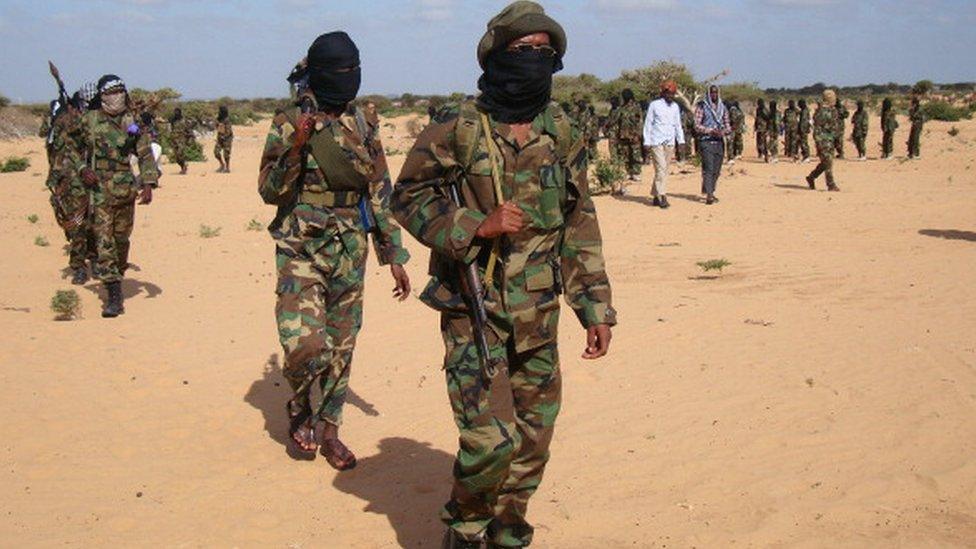Travel firms suspend flights to Mombasa after FCO warning
- Published
BBC News speaks to holidaymakers arriving at Gatwick
Hundreds of UK tourists are being evacuated from parts of the Kenyan coast, after the Foreign Office warned of a "high threat" from terrorists.
Tour operators Thomson and First Choice cancelled all flights to Mombasa until October and said some 400 holidaymakers would be flown back as a precaution.
The main threat has been linked to the militant Islamist al-Shabab group.
As UK tourists left, officials in Kenya said at least 10 people had died in two blasts in the capital Nairobi.
TUI Travel, which operates Thomson and First Choice, said those already in the country would be flown home by Monday.
Passenger Barry Jackson: "It wasn't the holiday we had banked on"
A spokesman confirmed a flight carrying some of the tourists landed at Gatwick on Friday morning, and that some holidaymakers were due to touch down at the airport at around 21:40 BST.
The FCO's warning against non-essential travel covered the Mombasa Island area, Kiwayu and coastal areas north of Pate Island, the Garissa district, the Eastleigh area of Nairobi, external and the slum areas of the Kenyan capital.
Areas within 60km (37 miles) of the Kenya-Somalia border are also included in the warning.
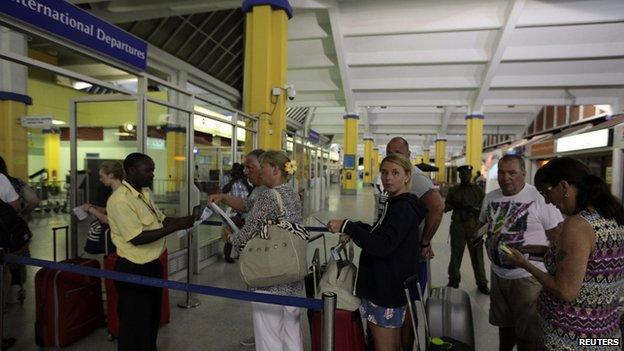
Planes have been chartered to fly British tourists home before the weekend
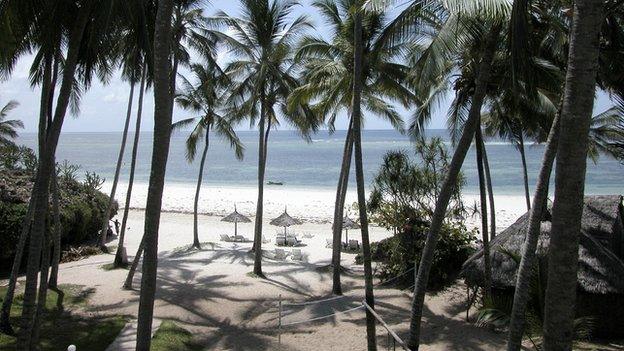
The popular Diani beach resort is not subject to any Foreign Office warnings
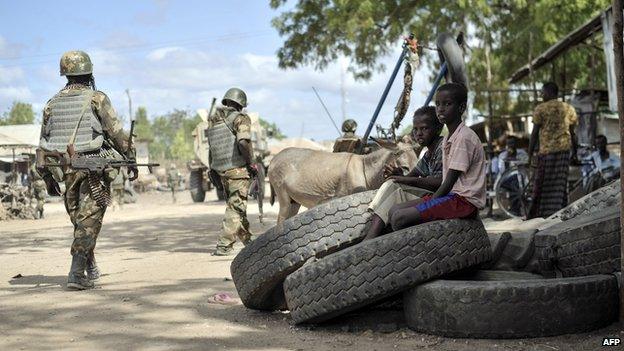
Kenyan troops have formed part of the African Union force targeting militants in neighbouring Somalia
But the FCO said its advice did not include the Diani beach resort or nearby Moi International Airport.
It said the main threat was from terrorism, which included kidnapping, and that Westerners could be targeted.
While Thomson and First Choice have cancelled flights until October, long-haul travel company Kuoni said it was not offering holidays to the Kenyan coast for the time being.
It said in a statement: "Although the advice does not include Moi International Airport, Diani beach or Malindi, the main road to access these resorts goes through the restricted area defined by the FCO advice.
"This means that we are no longer able to offer holidays to the Kenyan coast at present."
Meanwhile, holidaymaker Alex Dolphin from Surrey arrived back at Gatwick having spent three days at a resort on Diani Beach.
He told the BBC: "I didn't feel uneasy until we were in a convoy of three coaches parked on the roadside waiting to leave for the airport.
"I was keeping an eye open as we drove through Mombasa."
.gif)
Holidaymakers had been told they were being evacuated "under armed guard", British tourist John Bonar said on Twitter, external from Kenya on Thursday.
The United States, France and Australia issued similar alerts, prompting the Kenyan government to criticise the advice as "obviously unfriendly".
President Uhuru Kenyatta said if Western countries had intelligence which "warrants what they have done", they had not shared it with Kenyan intelligence officers.
Fearing the impact on the country's tourism industry, Interior Ministry spokesman Mwenda Njoka said: "The threats are perpetual, we are at war. But we have not received any specific threat on the hotels."
Frank Gardner reports on Kenya's battle against terrorism
BBC security correspondent Frank Gardner said there may have been a tip-off from an informant that al-Shabab, based in Somalia, was planning an attack.
"What sources are saying is that it is specifically Westerners they are after - either by kidnap or blowing them up," he said.
Our correspondent added that while the Kenyan government was "upset" by the FCO warning, this was a threat the UK could not ignore.
Foreign Office minister Hugo Swire said the government had a duty to issue the warning to its citizens.
"It's carefully targeted advice and we apologise to no-one in trying to provide the most accurate and up-to-date advice we can to our own people," he said.
The Kenyan government said there had been two explosions in the Gikomba market area of Nairobi on Friday.
Kenya has been hit by a spate of attacks in recent years, mostly blamed on al-Shabab, and President Kenyatta vowed to fight "evil" terrorism following the latest incidents.
UK Foreign Secretary William Hague said there was "no place" for such "appalling acts of violence", and said Kenyan authorities had Britain's "full support".
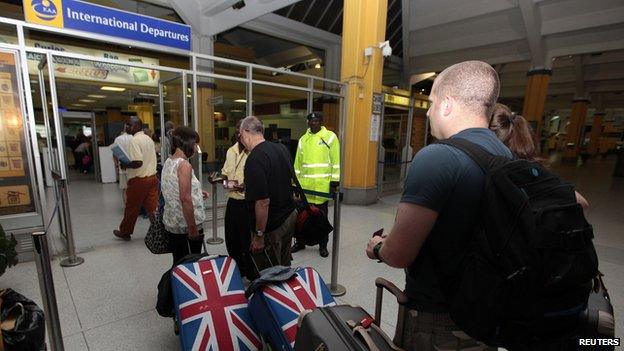
More tourists visit Kenya from the UK than from any other country
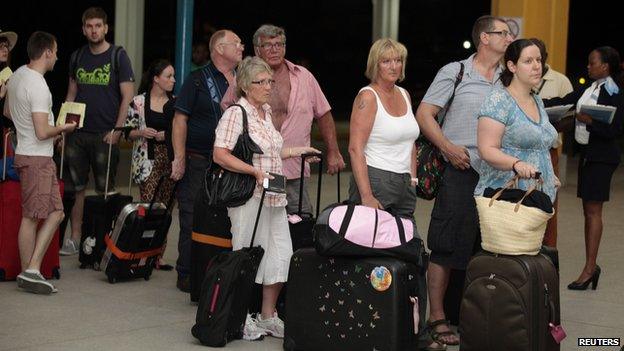
The Foreign Office said there were 5,000 UK nationals resident on the Kenyan coast, and 500 in or around Mombasa
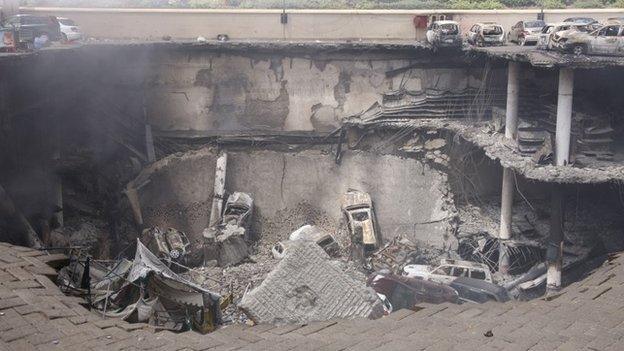
Sixty-seven people were killed last September during a siege of the Westgate shopping centre, which lasted four days
Speaking from Nairobi, British aid worker Jonathan Tench said he heard about the explosions earlier and spent time trying to make sure no one he knew had been hurt.
He said the market where people died was usually busy with shoppers and traders.
"It's so sad to think that it's poor, ordinary Kenyans being targeted," he said.
"I have been coming to Kenya for a long time over many years and this is really the first time that I've felt personally like my security is under threat."
Al-Shabab's attacks in the region have been carried out in response to the Kenyan military's intervention in Somalia.
Three people were killed and more than 80 wounded in explosions on two buses in the capital Nairobi earlier this month.
The Kenyan government said al-Shabab, which is linked to al-Qaeda, was behind the attacks.
The most high-profile of the group's recent attacks saw 67 people killed when its fighters stormed the Westgate shopping centre in September.
- Published16 May 2014
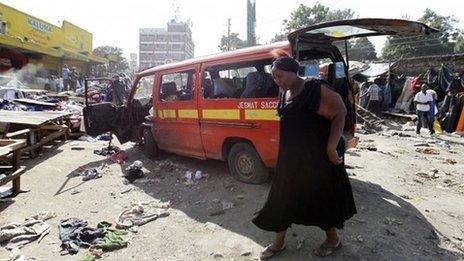
- Published16 May 2014
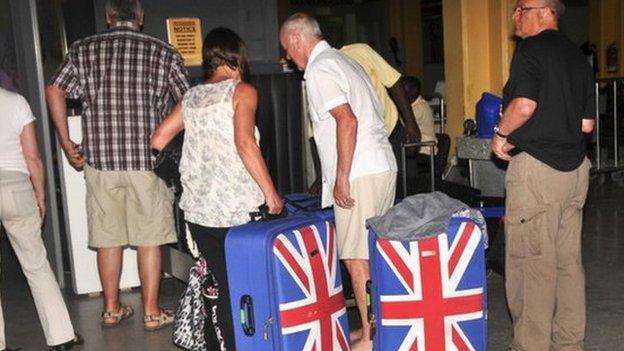
- Published13 May 2014
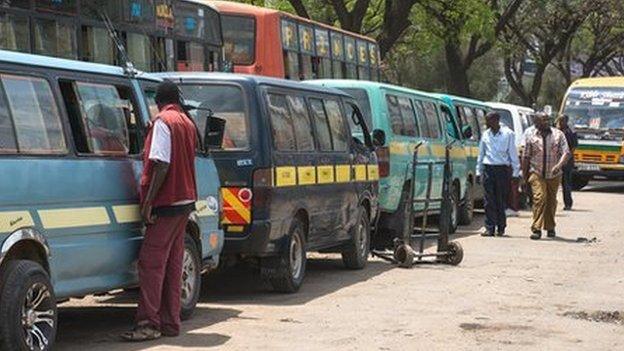
- Published4 July 2023
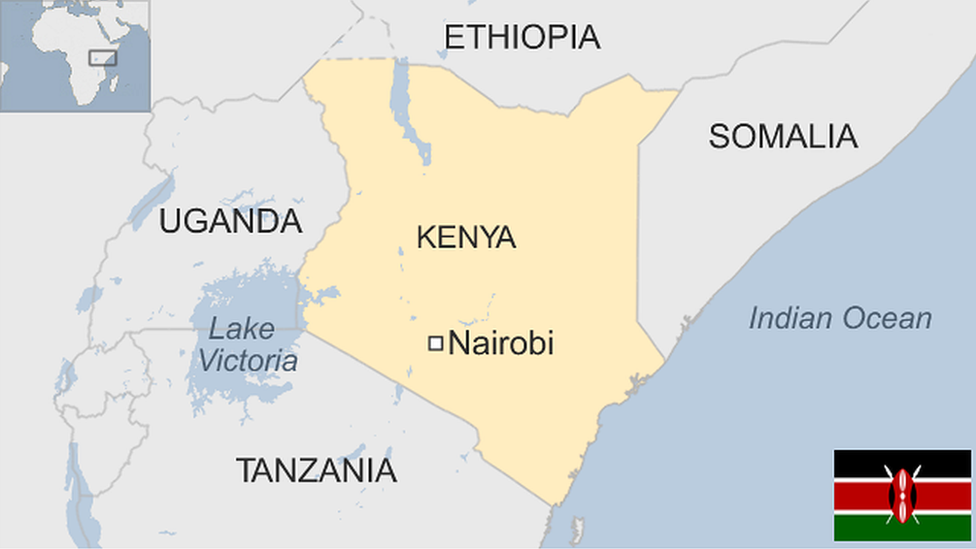
- Published22 December 2017
